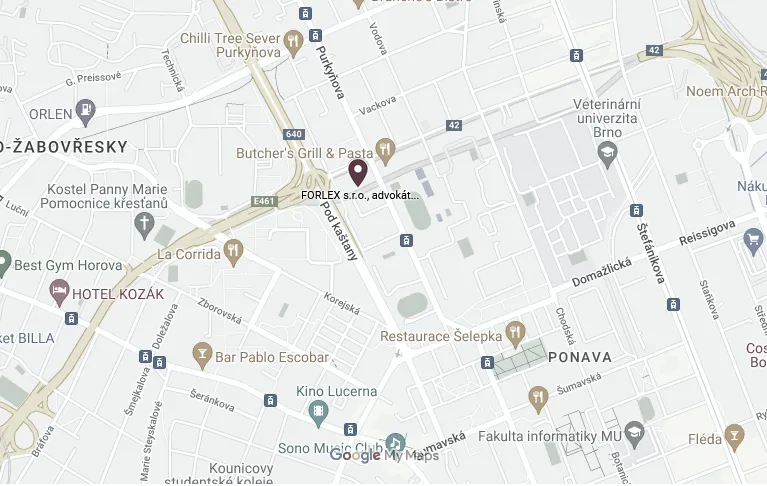NEWS
31/10/2019
Establishment of a necessary right-of-way to property acquired before 1 January 2014
The previous legal framework effective until 31 December 2013 did not exclude the possibility of establishing the right-of-way even in situations where the property owner was responsible for their own lack of access. The new Civil Code however expressly forbids the court from awarding necessary right-of-way in cases where the lack of access was caused by gross negligence or intentionally (it must be noted however, that in the past this aspect has been taken into account by courts, although usually only when specifying compensation for the establishment of necessary access). In its recent finding, the Constitutional Court confirmed the conclusions of the general courts, which held that it is irrelevant whether or not the lack of access to property was caused by its owner before or after the current legislation came into effect. Above all, the court then stated that gross negligence or intention can also be found in the actions of an owner who acquires property entirely enclosed by the property of another, with the knowledge that it is inaccessible and who fails to seek access amicably out of court, but rather attempts to achieve it using the police and the courts from the very start. In conclusion, neither the current nor the previous legislation established an inherent necessary right-of-way, but rather set out the conditions under which this right may be sought in the courts.
Legal services in CZ, SK and abroad
Contact
info@forlex.cz
+420 596 110 300
Ostrava
FORLEX s.r.o., attorneys-at-law
28. října 3159/29, 702 00 Ostrava
Brno
FORLEX s.r.o., attorneys-at-law
Jana Babáka 2733/11, Královo Pole, 612 00 Brno
Billing information
IČO: 04275705, DIČ: CZ 04275705
ČSOB
Account No. CZK – 321695472/0300
Account No. EUR – 333568649/0300
Registred in the Commercial Register maintained by the Regional Court in Ostrava, Section C, File 63028.
Consumer protection information
On 5 February 2016, the Czech Bar Association was authorized by the Ministry of Industry and Trade of the Czech Republic to deal with alternative consumer dispute resolutions in the field of disputes between a lawyer and a consumer arising from legal service agreements (under Act no. 634/1992 Sb., on consumer protection, as amended). The website of the designated body is www.cak.cz.




